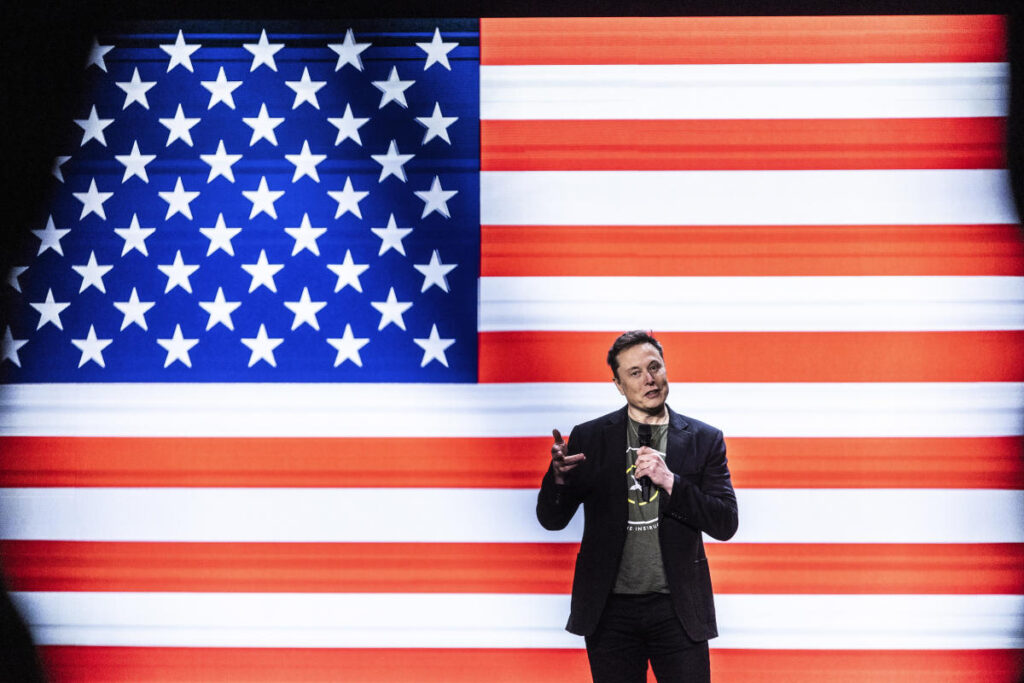In a recent report by The Wall Street Journal, it was revealed that Elon Musk, the billionaire owner of SpaceX and Tesla, has been in regular communication with Russian President Vladimir Putin over the past two years. While the exact number of interactions and their specifics were not disclosed, the reports highlighted that Musk and Putin have discussed personal matters, business interests, and geopolitical issues. In one notable conversation, Putin allegedly requested that Musk refrain from activating his Starlink satellite system over Taiwan at the behest of Chinese President Xi Jinping. This request raises eyebrows, particularly as Musk’s businesses are deeply intertwined with government contracts crucial for national security, leading to serious concerns about the implications of such private discussions.
The calls between Musk and Putin have led to scrutiny regarding their potential impact on American national security. Musk’s companies, especially SpaceX, hold significant government contracts that include essential partnership roles with NASA. The situation is further complicated by Musk’s notable financial and political support for Donald Trump, the Republican presidential nominee, who has promised to offer Musk a role in his administration should he be elected. Observers have noted that any CEO of a major defense contractor would face similar concerns if they engaged in undisclosed conversations with an adversary like Putin, deeming the situation indiscreet and potentially dangerous to Musk’s business interests.
Musk’s relationship with China also poses additional risks. His business ties in China, particularly in Shanghai, are well-known, and he has historically aligned his comments with Beijing’s interests. Musk has previously suggested that Taiwan should consider becoming a special administrative region of China, a stance that has drawn criticism. The overlapping ties between Russia and China can potentially amplify U.S. geopolitical challenges, especially in light of Russia’s accusations of supplying ballistic missiles to Iran and collaborations with North Korea, both entities viewed as adversaries by the U.S.
Musk’s stance on the ongoing war in Ukraine has seen significant shifts. Initially supportive of Ukraine following the Russian invasion in 2022, he provided Starlink technology to assist Ukrainian communications. However, in 2023, Musk took a controversial stance by refusing to support a Ukrainian attack in Crimea using Starlink. His prior proposal to resolve the conflict by conceding Crimea to Russia and limiting Ukraine’s NATO aspirations sparked outrage among Ukrainian leaders. Despite conflicting reports connecting Musk’s discussions with Putin, sources suggested that there is no conclusive evidence indicating that Musk’s interactions present a direct security threat to the U.S., although the CIA and other agencies have not provided comments on the matter.
Musk’s close ties to Trump and his public support during recent campaign events lead to further speculation regarding their relationship with foreign powers. Trump has been known to make flattering comments about Putin and has raised questions about concessions regarding Ukraine should he regain power. The Trump campaign also faces scrutiny over allegations of disinformation support from Russia, especially within digital platforms like Twitter, now known as X, which Musk has significantly influenced since acquiring it. The synergy between Trump’s campaign and Musk’s platform lends credence to concerns about a coordinated effort that could sway public opinion and political outcomes in favor of Russian interests.
Kremlin officials have dismissed the report of frequent conversations between Musk and Putin, claiming that there was only one discussion that could be characterized as introductory and focused on technologies rather than political matters. Their rejection of the story as “absolutely false” highlights the ongoing tension and political intrigue surrounding the relationships forming between powerful business leaders, political figures, and foreign adversaries. While Musk’s role as a business leader is often celebrated, his entanglements within international politics, especially with figures like Putin, suggest the need for greater transparency regarding such communications, particularly in an era where national security is under intense scrutiny. Public comments from various intelligence and defense officials remain elusive, leaving many to ponder the true implications of these high-profile discussions on future U.S. foreign policy and security strategy.

